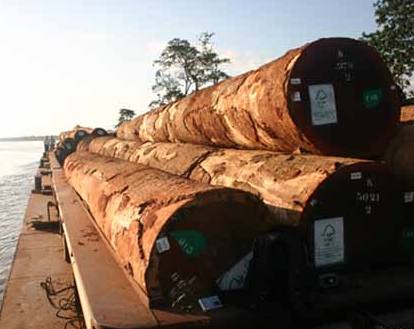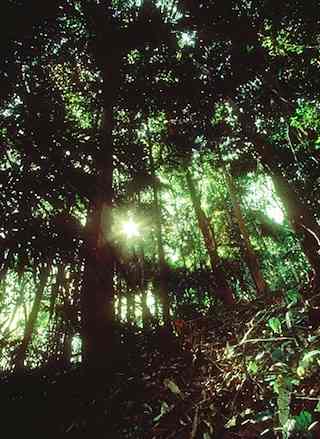 The world’s third largest paper company, Asia Pulp and Paper (APP), announced earlier this month an immediate end to all natural forest clearing in its supply chains in Indonesia.
The world’s third largest paper company, Asia Pulp and Paper (APP), announced earlier this month an immediate end to all natural forest clearing in its supply chains in Indonesia.
The company’s pledge to stop making paper from the pulped remains of some of the last virgin rainforests, along with its improved transparency, will help protect endangered Sumatran tigers and orangutans and also the region’s indigenous peoples, many of whom depend on forest resources for their livelihoods. Most importantly, the move responds to the threat of climate change because it protects forested peatlands that store massive amounts of greenhouse gases.
APP’s announcement, the result of 12 months of on-the-ground field work by the non-profit group, Tropical Forest Trust (TFT), and lengthy negotiations between Greenpeace and APP’s management, could set a serious precedent for the rest of the industry.
Scott Poynton, the executive director of TFT, says the agreement globally represents a possible tipping point for using the influence of advocacy groups such as Greenpeace to affect the role of the private sector. The key is to hammer out a strategy for how industry can do the right thing while surviving economically.
APP’s commitments show other producers worldwide—whether they sell pulp and paper, palm oil, soy, or beef—that it is possible to run a business without destroying humanity’s habitat.”
In today’s announcement, APP outlined a set of policies—part of its agreement with TFT— that will end its role in the practice of destroying forests to make room for tree plantations. The company also pledged to respect the rights of forest-dwelling communities and bring all third-party suppliers into line with its sustainability efforts. The new policies, which went into effect February 1, apply to all of the company’s operations around the world, its suppliers in Indonesia as well as its paper mills abroad, including those in China.
 TFT has a proven track record of designing deforestation-free supply chains for companies worldwide—from a timber company in the Republic of Congo to a shoe retailer in the European Union. Most notably, TFT has shaped “no deforestation” policies for the food powerhouse Nestlé and the world’s second-largest palm oil producer, Golden Agri-Resources—in 2011, TFT successfully helped GAR launch a Forest Conservation Policy. TFT is now using this same model in working with APP to change the way it supplies its mills with fiber—the building block of the company’s internationally-produced and distributed paper products. Half of TFT’s 100-member team is based in Indonesia, where they work directly with suppliers feeding into global supply chains.
TFT has a proven track record of designing deforestation-free supply chains for companies worldwide—from a timber company in the Republic of Congo to a shoe retailer in the European Union. Most notably, TFT has shaped “no deforestation” policies for the food powerhouse Nestlé and the world’s second-largest palm oil producer, Golden Agri-Resources—in 2011, TFT successfully helped GAR launch a Forest Conservation Policy. TFT is now using this same model in working with APP to change the way it supplies its mills with fiber—the building block of the company’s internationally-produced and distributed paper products. Half of TFT’s 100-member team is based in Indonesia, where they work directly with suppliers feeding into global supply chains.
“With little hope that world’s governments will ever agree on a climate change treaty, companies have a huge role to play in reducing emissions, and deforestation has always been a primary target,” says Poynton. “We will closely support and monitor APP to make sure its contribution is realized.”
(More information from the Guardian and TFT)



















